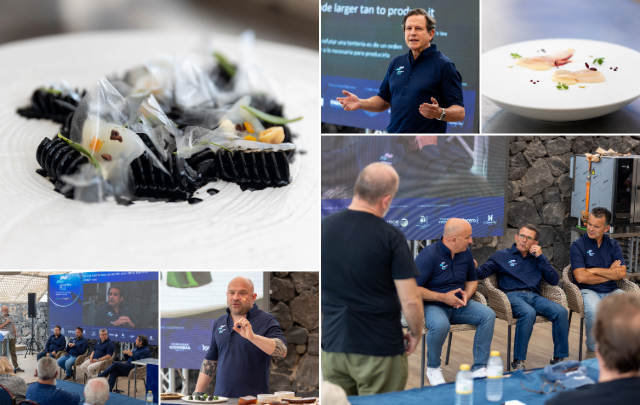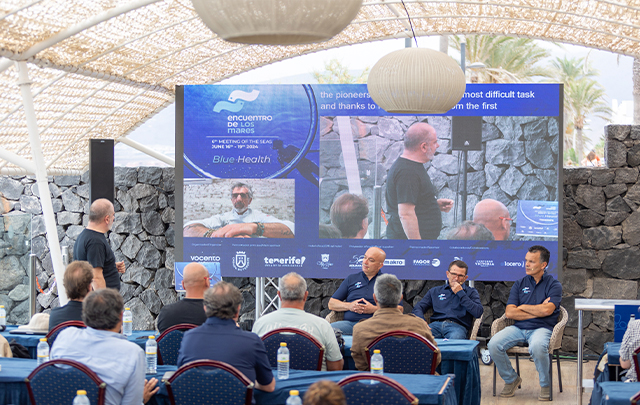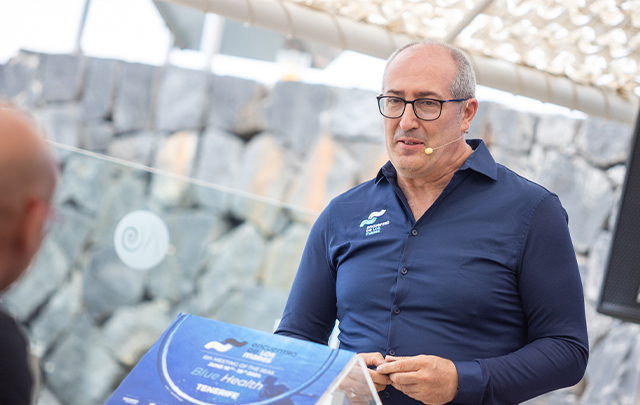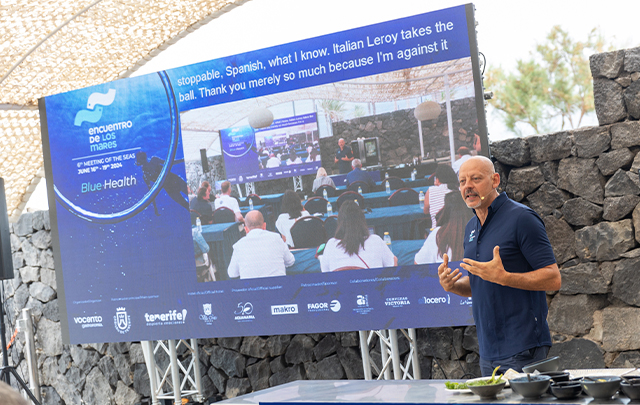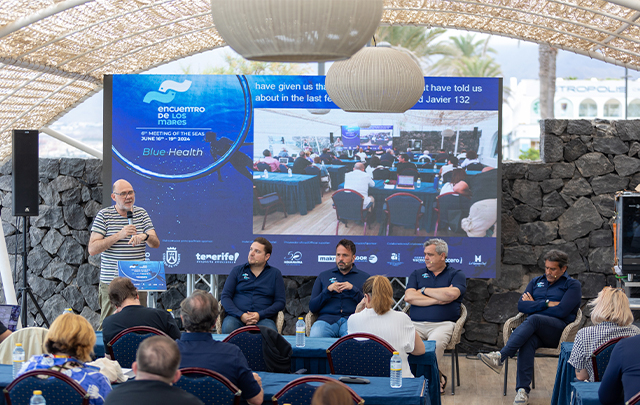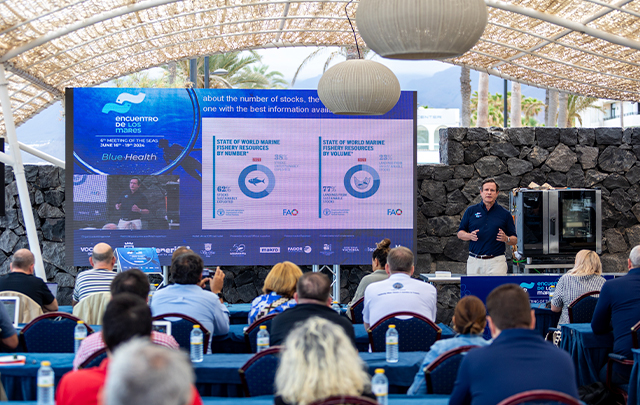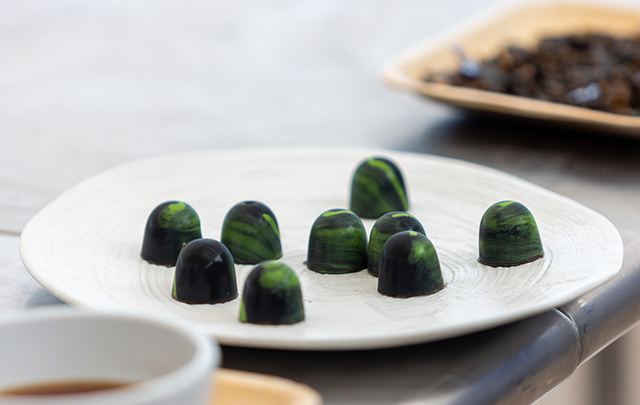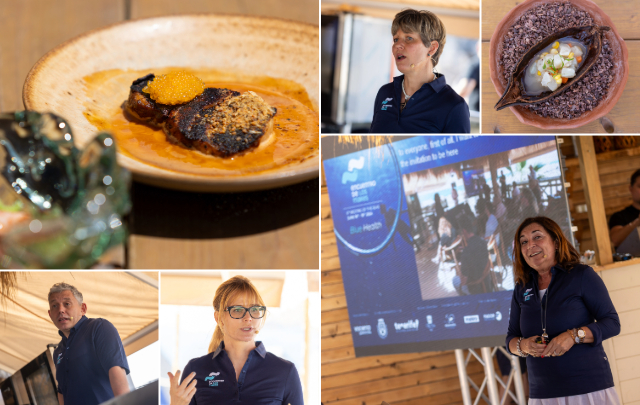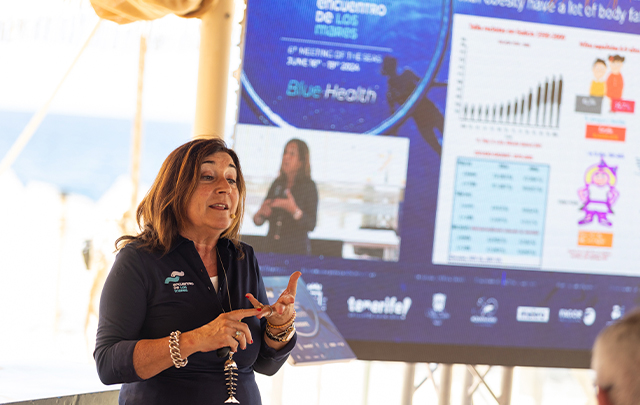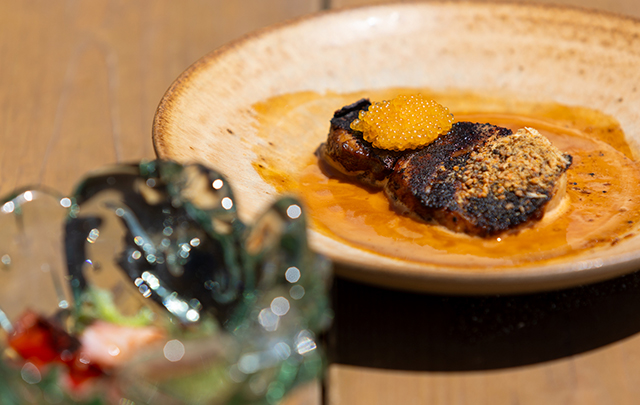News
Aquatic blue food: a great history and a great future
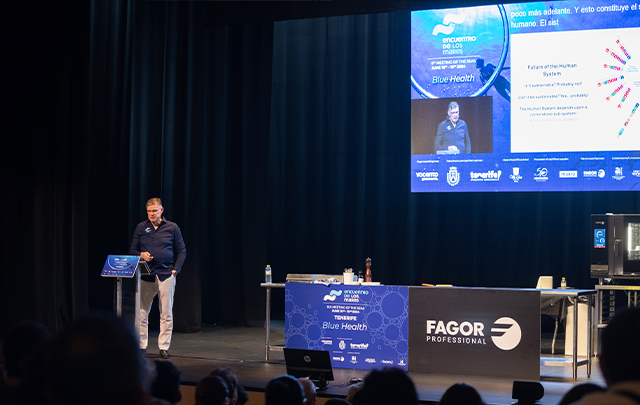
Árni M. Mathiesen talks about the importance of these foods from a health point of view, but also from a sustainability point of view.
He is an advisor to the Iceland Ocean Cluster and from this perspective has been able to propose some policy recommendations based on the experience of the Aquatic Blue Food Coalition and other related work. Árni M. Mathiesen came to the Adeje Auditorium to present his vision of aquatic blue food, which "has a great history, but also a great future".
One of the questions he has asked himself and the audience is whether the planet's current food system is sustainable. His answer is no, although he admits that "with optimism, the answer could probably be that it could be sustainable". To do so, however, the fundamentals of the system would have to be changed, and that is not at all easy because, for example, there is a very important social aspect that distorts everything, and that is none other than the geographical distribution of humanity.
Mathiesen highlighted the fact that "the sea provides us with high-quality protein, with essential amino acids". He also analysed what constitutes a healthy diet according to his parameters, asking what people need and what the environment can give us without us overstepping the limits so that we can continue to be sustainable. Often looking to the sea, he has analysed how a tiny fish "has all the nutrients and vitamins we need for a day".
The ecological footprint
The expert also pointed out that the current food system generates a quarter of greenhouse gas emissions, but in the case of the aquatic blue food system, the environmental footprint is much smaller. "There is still a lot of progress to be made, but it is undeniable that the aquatic blue food system works much better than the terrestrial one and could do even better".
The expert also pointed out that the current food system generates a quarter of greenhouse gas emissions, but that in the case of the aquatic blue food system, the environmental footprint is much smaller. "There is still a lot of progress to be made, but it is undeniable that the aquatic blue food system works much better than the terrestrial one and could do even better.
Looking at the aquatic food pyramid, Mathiesen believes it is imperative that we move at the base and not stay in the area closest to the top. He also admitted that one of his biggest concerns is that "we need more fish than the oceans can give us; it terrifies me to think that we might run out of fish. So we have to balance the base and find alternative sources" to make our pyramid viable. And for him, one of the easiest ways to achieve this commitment to blue fish is "through school meals, because it will always be easier to incorporate it into the diet if the taste is acquired at an early age. This is where we can introduce fish consumption". He also recalled the recommendation to increase the consumption of fish in the Mediterranean diet.
He ended on an optimistic note: "The potential of the oceans is infinite.

